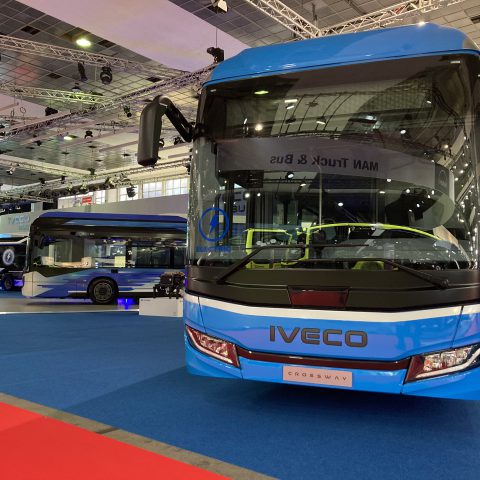European Investment Bank awards Iveco Group a 500 million euros financing
500 million euros financing has been granted by the European Investment Bank (EIB) to Iveco Group. The loan of 450 million euros signed in Turin represents the first tranche of the 500 million total approved by the Board of Directors of the EIB. The loan, with an 8-year amortisation profile, will be drawn in full […]

500 million euros financing has been granted by the European Investment Bank (EIB) to Iveco Group.
The loan of 450 million euros signed in Turin represents the first tranche of the 500 million total approved by the Board of Directors of the EIB. The loan, with an 8-year amortisation profile, will be drawn in full shortly, Iveco Group states. That adds: “the resources made available by EIB will enable Iveco Group to develop innovative technologies and architectures in the field of electric propulsion. The Iveco Group will also increase efficiency, safety, driving comfort and productivity by further developing solutions for autonomous driving, digitalisation and vehicle connectivity”.
The EIB investments is set to not only contributing to improving electric and fuel cell vehicles, but also to reducing production costs and operating costs of the products and services, facilitating wider penetration in the market of these new technologies for the benefit of all users.
EIB financing for Iveco Group
The investments will be made by the end of 2025, mainly in Italy – specifically in the Iveco Group Turin and Foggia plants (the latter inaugurated in April 2023) – but also in Germany, France, Spain, Czech Republic and Switzerland, the group states.
Gilles Badot, EIB Director for Operations in Italy, said: “Investing in projects that facilitate the development of sustainable mobility is essential to accelerate the decarbonisation of the transport sector, which is responsible for more than a quarter of the CO2 emissions in Europe. This operation with Iveco Group not only demonstrates the strong commitment of the EIB to the climate transition, but also contributes to promoting innovation and job creation in Italy and Europe.”
Marco Liccardo, Chief Technology & Digital Officer, Iveco Group, commented: “This significant financing from the EIB demonstrates trust in Iveco Group’s ability to advance sustainable mobility and our ongoing efforts to reduce the carbon footprint of the transport sector. It will enable us to accelerate the development and deployment of innovative technologies and solutions that are key to our strategic vision and the future of transport.”







